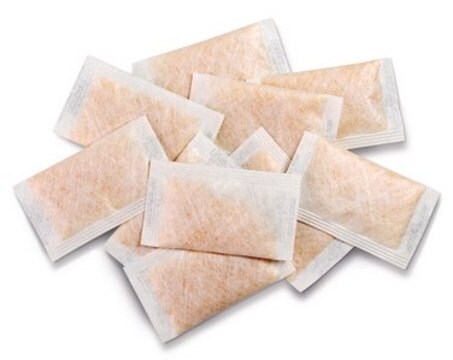94098
Drying pearls orange
Synonym(s):
Aluminum silicate, Silica gel orange
Sign Into View Organizational & Contract Pricing
All Photos(1)
About This Item
Recommended Products
description
heavy metal free
Quality Level
form
beads
capacity
>30 % absorption capacity (water)(at 80% rel. humidity, 25°C)
SMILES string
[Si](=O)=O
InChI key
VYPSYNLAJGMNEJ-UHFFFAOYSA-N
General description
Drying pearls Orange (Silica gel orange), commonly used as a drying agent in laboratories, is suitable for drying all gases and solids. It is used in desiccators, drying towers, and absorption tubes. Silica gel orange provides longer storage conditions due to its large surface area which enables high absorption capacity. It also changes its color from orange to colorless after moisture absorption (approx. 6 wt% load).
Reconstitution
regeneration by drying at 130 - 160 °C; do not heat above 160 °C
Storage Class Code
13 - Non Combustible Solids
WGK
nwg
Flash Point(F)
Not applicable
Flash Point(C)
Not applicable
Personal Protective Equipment
dust mask type N95 (US), Eyeshields, Gloves
Choose from one of the most recent versions:
Already Own This Product?
Find documentation for the products that you have recently purchased in the Document Library.
Customers Also Viewed
Effects of star-shaped poly (alkyl methacrylate) arm uniformity on lubricant properties
Robinson JW, et al.
Journal of Applied Polymer Science, 133(26) (2016)
Jin-Kyu Kang et al.
Environmental technology, 34(5-8), 703-710 (2013-07-11)
The aim of this study was to investigate the adhesion of bacteria (Escherichia coli) to pyrophyllite clay using batch and flow-through column experiments. Batch results demonstrated that pyrophyllite was effective in removing bacteria (94.5 +/- 2.0%) from aqueous solution (1
Benjamin J Smith et al.
Proceedings of the National Academy of Sciences of the United States of America, 108(22), 8949-8954 (2011-05-13)
Sugar molecules adsorbed at hydrated inorganic oxide surfaces occur ubiquitously in nature and in technologically important materials and processes, including marine biomineralization, cement hydration, corrosion inhibition, bioadhesion, and bone resorption. Among these examples, surprisingly diverse hydration behaviors are observed for
M Zabeti et al.
Bioresource technology, 118, 374-381 (2012-06-19)
Canadian pinewood was pyrolyzed at 450 °C in an Infrared oven and the pyrolysis vapors were converted by passing through a catalyst bed at 450 °C. The catalysts studied were amorphous silica alumina (ASA) containing alkali metal or alkaline earth
Georgios Toskas et al.
ACS applied materials & interfaces, 3(9), 3673-3681 (2011-08-24)
Ceramic silica (SiO(2)) hybrid nanofibers were prepared by electrospinning of solutions containing biocompatible polymer and modified silica precursors. The new hybrid nanofibers are based on polyethylene oxide (PEO) and a new solution of modified sol-gel particles of mixture containing tetraethoxysilane
Our team of scientists has experience in all areas of research including Life Science, Material Science, Chemical Synthesis, Chromatography, Analytical and many others.
Contact Technical Service



